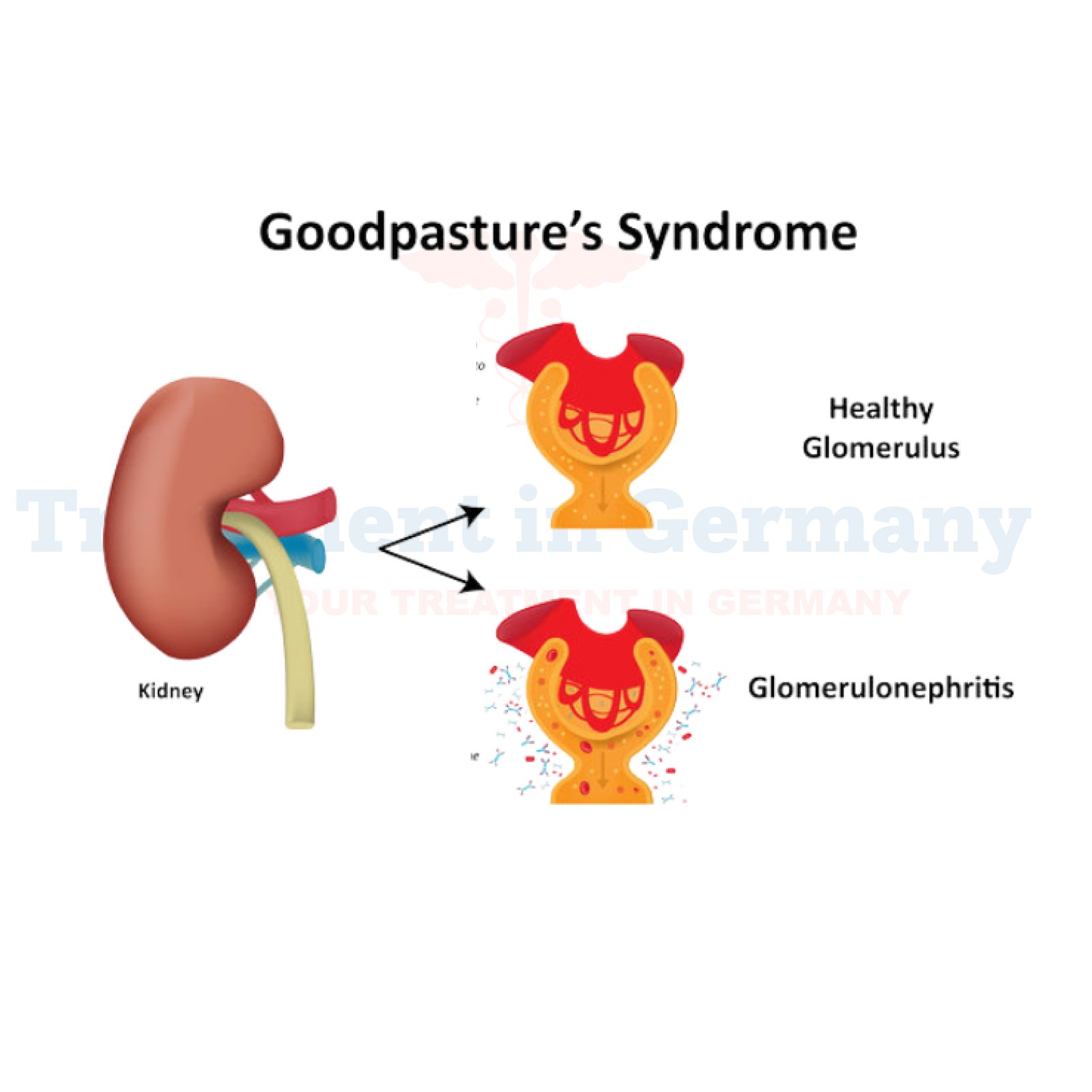What is Goodpasture Syndrome:
Goodpasture Syndrome is a rare autoimmune disorder characterized by the body's immune system attacking the lungs and kidneys. It primarily affects the small blood vessels in these organs, leading to inflammation and damage.
Named after the American pathologist Ernest Goodpasture who first described it in the early 20th century, this condition can be severe if not diagnosed and treated promptly.
Side effects of Goodpasture Syndrome:
The symptoms of Goodpasture Syndrome can vary from person to person but often include:
- Respiratory Issues: Persistent cough, shortness of breath, and coughing up blood (hemoptysis) are common symptoms due to lung inflammation.
- Kidney Problems: Blood in the urine (hematuria), proteinuria (protein in the urine), and decreased urine output may indicate kidney damage.
- General Symptoms: Fatigue, weakness, and pale skin can result from anemia caused by blood loss in the urine.
Untreated Goodpasture Syndrome can lead to severe complications such as kidney failure and respiratory failure, making early diagnosis crucial for effective management.
How is Goodpasture Syndrome diagnosed?:
Diagnosing Goodpasture Syndrome typically involves a combination of medical history review, physical examination, and various tests, including:
- Blood Tests: These may reveal the presence of antibodies called anti-glomerular basement membrane (anti-GBM) antibodies, which are often elevated in Goodpasture Syndrome.
- Urine Tests: Analysis of urine for blood and protein levels can provide important clues about kidney involvement.
- Imaging Studies: Chest X-rays or CT scans may show lung abnormalities such as bleeding or inflammation.
- Biopsy: A tissue sample from the kidney or lung may be taken for microscopic examination to confirm the diagnosis.
Prompt and accurate diagnosis is essential to begin treatment and prevent further organ damage.
Potential treatments of Goodpasture Syndrome:
Treatment for Goodpasture Syndrome aims to suppress the immune system's abnormal response and reduce inflammation. Common approaches include:
- Immunosuppressive Therapy: Medications such as corticosteroids and cyclophosphamide are often used to suppress the immune system's activity and prevent further damage to the lungs and kidneys.
- Plasmapheresis: This procedure involves removing antibodies from the blood to reduce inflammation and improve kidney function.
- Kidney Dialysis: In cases of severe kidney damage, dialysis may be necessary to help remove waste products and excess fluid from the blood.
- Kidney Transplant: For individuals with end-stage kidney failure, a kidney transplant may be considered as a long-term solution.
👉 Contact us for further information and receive a complimentary consultation.


.webp)
 (1).webp)

.webp)
 (1).webp)


.webp)
 (1).webp)

.webp)
 (1).webp)
